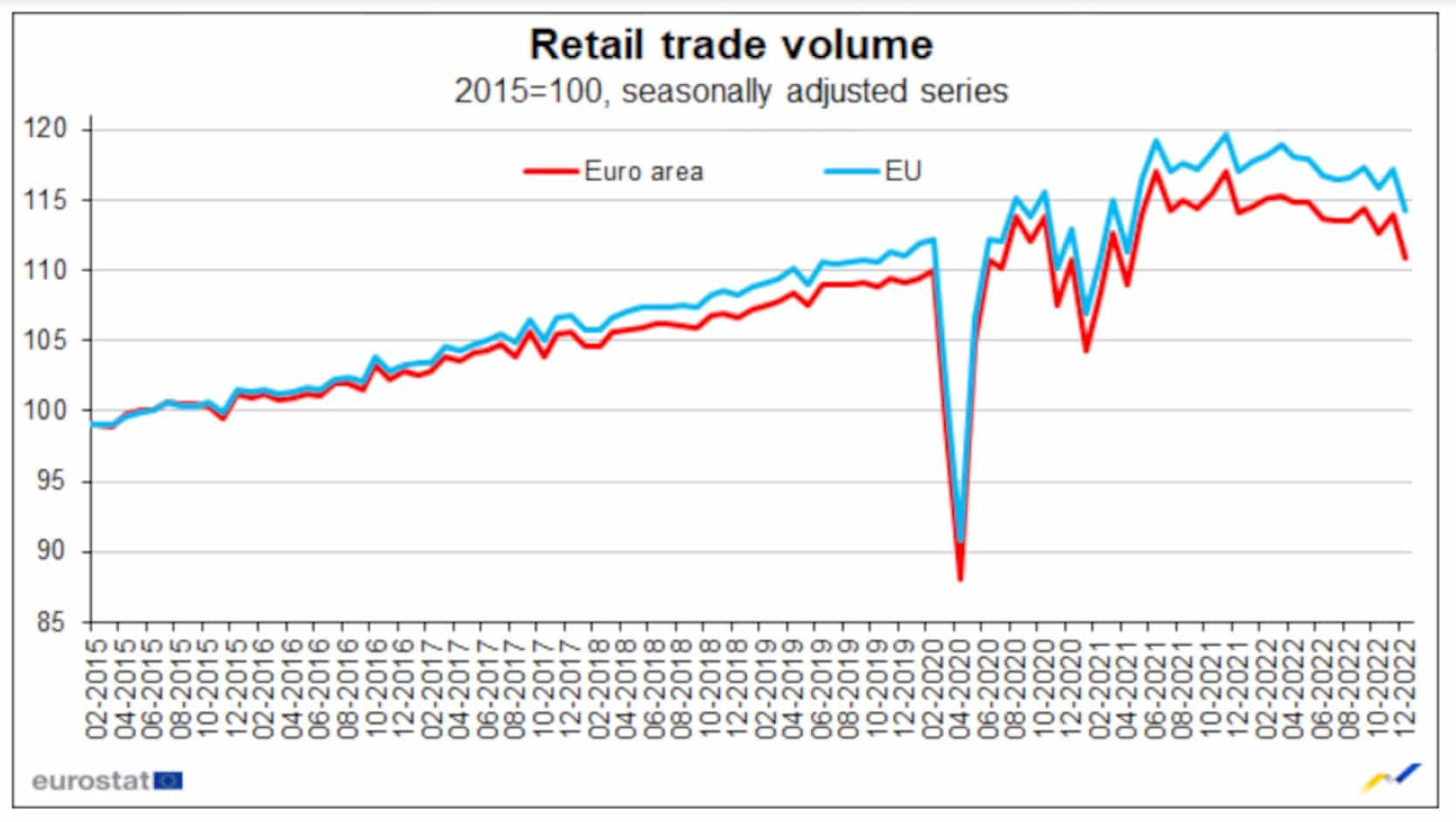(CN) — Fewer consumer purchases of food, drink and tobacco products helped influence a 2.7% monthly decrease in the volume of retail trade in the eurozone last December, according to a report released Monday by Eurostat.
Sales declined in all sectors except automotive fuels in specialized stores, which increased by 2.3%. Non-food products also saw a 2.6% volume decrease, while mail orders and internet purchases declined 2.3% from November.
The gap is even larger compared to the volume of trade one year ago. Since December 2021, consumers in the 20-nation eurozone have purchased 6.9% fewer food products and 5.5% fewer products from mail orders and the internet, leading to a 2.8% annual decrease. Meanwhile, the retail volume of non-food products has only declined 0.6% in the past year, while automotive fuels are up 6% since December 2021.
The decreases are less pronounced in the geographically larger European Union, which experienced a 2.6% monthly decrease in retail sales in December 2022, and a 2.5% annual decrease since December 2021.

The most thrifty of the 27 EU member states over the past year include Belgium, where trade has decreased 9.2%; Denmark with a 8.4% decrease; Norway with a 7.7% decrease; and Sweden with a 7.1% decrease. Meanwhile, trade volume actually increased in nine EU countries led by Malta with 5.7%, followed by Romania with 5.3% and Greece with 4.6%.
Retail was stagnant in the Netherlands and a change of less than 1%, positive or negative, was recorded in France, Latvia, Austria and Portugal.
Eurostat, the EU's statistics agency, defines the index of the volume of retail trade as a measure of “the evolution of the total amount of goods sold, based on data adjusted for calendar and seasonal effects.”
The general decrease in spending over the past year comes as the EU experienced a record high inflation rate of 9.8% in July 2022, led by record high energy costs partially as a result of the war in Ukraine. Inflation peaked at 11.5% in October 2022 before it started cooling in December and January.
Subscribe to Closing Arguments
Sign up for new weekly newsletter Closing Arguments to get the latest about ongoing trials, major litigation and hot cases and rulings in courthouses around the U.S. and the world.









